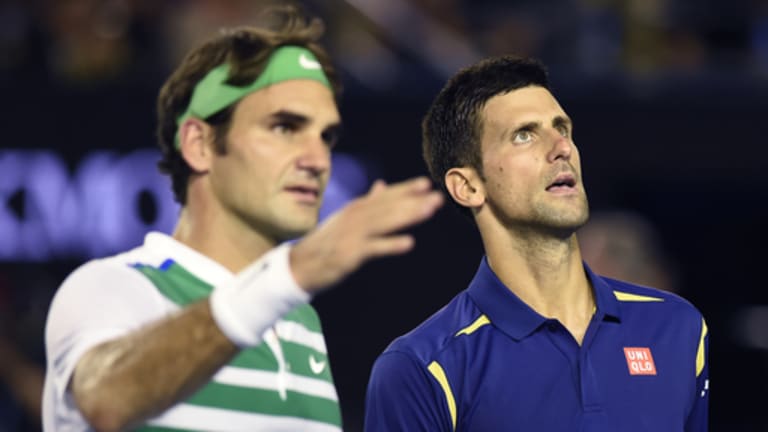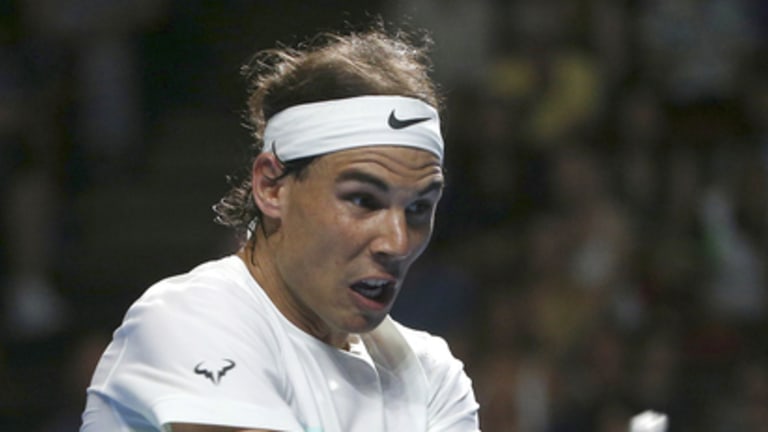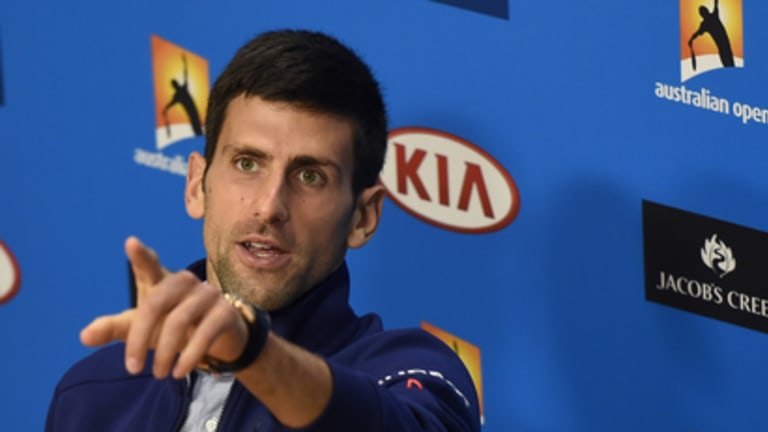Novak Djokovic had been the 2016 Australian Open champion for approximately 15 minutes before he heard the question: Can you, the ESPN commentators interviewing him at Melbourne Park wanted to know, win all four majors this season? One of those commentators, Brad Gilbert, even had a nickname ready for the accomplishment: The Djoker Slam. The world No. 1 smiled, bumped fists with Gilbert, and said he liked the sound of that.
“I don’t have any limitations in my mind,” Djokovic said, repeating what has long been a mantra of his.
Over the next few days, the speculation surrounding Djokovic’s future began to extend far beyond 2016. Was he now, many in the press and on Twitter wondered, the best ever to pick up a racquet? Was he the proverbial and partly mythical GOAT? According to at least one U.K. media outlet, the verdict is already in. Before the Aussie Open was over, Metro ran a column with this headline: 6 REASONS DJOKOVIC HAS OVERTAKEN FEDERER AS THE GREATEST TENNIS PLAYER OF ALL TIME


